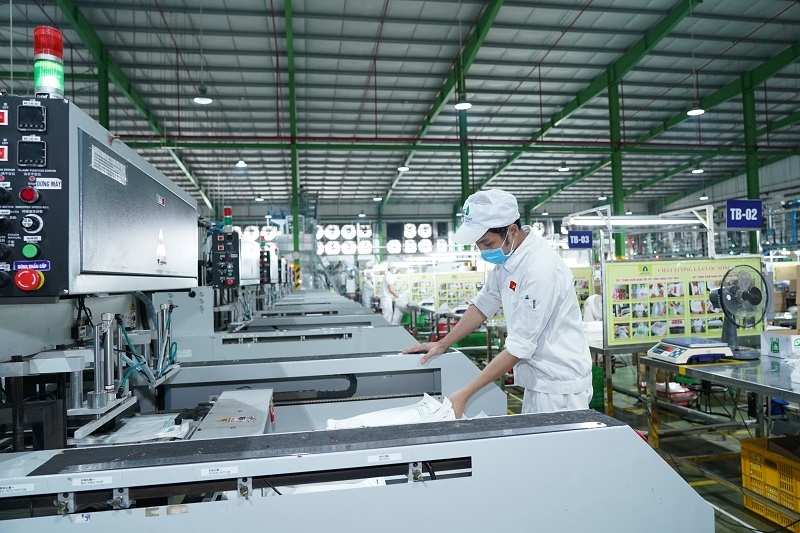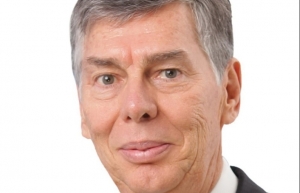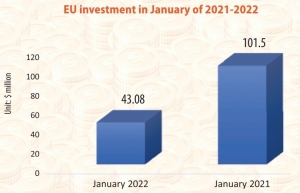Nearly half of European companies to increase investment by year end
 |
A total of 42 per cent of European companies anticipate that they will increase foreign direct investment (FDI) flows to Vietnam by the end of 2022, according to the Business Climate Index (BCI) published by the European Chamber of Commerce in Vietnam and produced by YouGov Decision Lab.
The respondents indicated that Vietnam could bolster these FDI levels by reducing administrative difficulties (68 per cent), improving infrastructure (53 per cent), developing human resources capacity (39 per cent), and reducing visa barriers for foreign experts (39 per cent).
Despite a quarter of respondents identifying green growth as a key factor in attracting FDI to Vietnam, the number of respondents rated Vietnam's green potential positively decreased from 44 to 32 per cent. To accelerate green development, participants in the BCI recommended that Vietnam improve its legal framework (92 per cent), its infrastructure (87 per cent), and its investment incentives (86 per cent).
As August 2022 marks the two-year anniversary of the implementation of the EU-Vietnam Free Trade Agreement (EVFTA), the perception of its benefits has declined by four percentage points compared to the previous quarter. Administrative procedures were cited as the primary reason for this (38 per cent), followed by a lack of understanding of the agreement (18 per cent), and technical barriers to trade (16 per cent).
EuroCham chairman Alain Cany said, "Vietnam offers great investment opportunities for European businesses, and we are very excited about the country's prospects in the medium- to short-term. Through the EVFTA and our shared commitment to sustainable development, Vietnamese and European companies have a great deal of growth potential.”
“It is true that we are less optimistic now than we were at the beginning of 2022 due to external factors slowing global growth. The fourth quarter will also likely be less positive than the second or third quarters of the year. Still, these survey results are encouraging. Vietnam will certainly be in a better position in two or three years, demonstrating its place among the most exciting and dynamic business and investment destinations," he said.
Although Vietnam's economy grew at a record 13.67 per cent year-on-year in the third quarter of 2022, the BCI declined for the second consecutive quarter, dropping 6.4 index points from Q2 and 10.8 points from Q1. This comes as global economic conditions remain unstable due to the escalating conflict in Ukraine, persistent inflationary pressures, a labour shortage worldwide, and stagnant global growth.
Amid the current global economic uncertainty, the BCI is still 10.2 points higher than its pre-pandemic level of 52 in the fourth quarter of 2019 and 1.2 points higher than in the fourth quarter of 2020, when Vietnam was easing its pandemic-related restrictions.
The BCI’s results also showed a decline in optimism among European business stakeholders. Approximately 42 per cent of participants anticipate that the economy will stabilise or improve in the fourth quarter of 2022. This is an 18-point decrease from the previous quarter when 60 per cent held this view. Similarly, the percentage of those anticipating economic deterioration increased by seven points to 19 per cent.
Even so, when asked whether they were optimistic about the prospects for their own businesses during the fourth quarter of 2022, 45 per cent responded positively, down only four points from the last quarter. Furthermore, respondents expect investment planning, orders, and revenues to remain relatively stable compared with the previous quarter. The outlook here appears to be more optimistic than that for the economy as a whole.
While only 2 per cent of BCI participants reported that they had relocated a significant portion of their operations from China to Vietnam, this suggests that there is still considerable room for growth. If these obstacles are resolved, Vietnam will be well-positioned to attract more foreign investors relocating from China.
 | Greater EU investment flow expected After the challenges in their commercial operations, European businesses in Vietnam are recovering and rebounding. Alain Cany, chairman of the European Chamber of Commerce in Vietnam, talked to VIR’s Bich Thuy about the prospects and trends of the EU-Vietnam Free Trade Agreement that bolsters trade interaction with both sides. |
 | High-tech EU investment shows promise Driven by the Vietnamese government’s new strong moves, greater investment flows from the EU into Vietnam is on the horizon for 2022, focusing on high-tech industries as well as green and sustainable business, expecting to change the country’s foreign investment picture in the months to come. |
 | European FDI continues to flow into Vietnam amid economic uncertainties European companies expect foreign direct investment (FDI) to continue to flow into Vietnam although their confidence in the local business environment decreased slightly amid global economic uncertainties. |
What the stars mean:
★ Poor ★ ★ Promising ★★★ Good ★★★★ Very good ★★★★★ Exceptional
Related Contents
Latest News
More News
- MAE names big 10 policy wins in 2025 (February 06, 2026 | 08:00)
- US firms deepen energy engagement with Vietnam (February 05, 2026 | 17:23)
- Vietnam records solid FDI performance in January (February 05, 2026 | 17:11)
- Site clearance work launched for Dung Quat refinery upgrade (February 04, 2026 | 18:06)
- Masan High-Tech Materials reports profit: a view from Nui Phao mine (February 04, 2026 | 16:13)
- Hermes joins Long Thanh cargo terminal development (February 04, 2026 | 15:59)
- SCG enhances production and distribution in Vietnam (February 04, 2026 | 08:00)
- UNIVACCO strengthens Asia expansion with Vietnam facility (February 03, 2026 | 08:00)
- Cai Mep Ha Port project wins approval with $1.95bn investment (February 02, 2026 | 16:17)
- Repositioning Vietnam in Asia’s manufacturing race (February 02, 2026 | 16:00)

 Tag:
Tag:




















 Mobile Version
Mobile Version